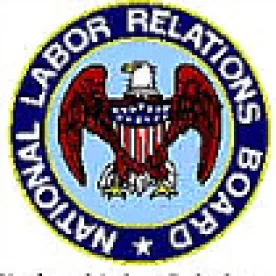On December 7, 2018, National Labor Relations Board (NLRB) General Counsel Peter Robb issued General Counsel Memorandum 19-02, Reducing Case Processing Time (GC 19-02). The memorandum describes significant changes to unfair labor practice (ULP) charge investigations conducted by the agency’s regional offices. These changes will affect virtually every charge handled by the agency.
The primary change implemented by GC 19-02 is the end of agencywide case processing deadlines. Previously, the NLRB’s Division of Operations-Management in Washington, D.C., required the regions to submit reports at the end of each month showing actions taken on cases due during that month. Each case’s due date depended upon when it was filed and whether the case was a Category I, II, or III case. Category III (exceptional impact) cases required the quickest processing times because they covered issues such as potential injunctions and discharges during organizing campaigns. Regions could postpone end of the month deadlines if there was a sufficient reason, such as new charges, amended charges, or the issuance of subpoenas.
The new system implemented by General Counsel Robb instead requires every region to reduce its median case processing time by 5 percent each year for the next 4 years. The 5 percent target is region-specific, so regions that previously processed cases more slowly will have different targets than regions that processed cases more quickly. Additionally, the memorandum allows the regions to self-impose end-of-the-month deadlines on their agents, or other deadline systems, if they so choose.
The new system carries several immediately apparent implications:
Other developments will also affect implementation of these guidelines:
These changes went into effect immediately. Consequently, all charges pending as of December 7, 2018, fall under the new guidelines. If an employer has a charge currently pending before the Board, it might benefit from reassessment of its previous expectations with regard to the timing of the investigation.
Other implications and developments will become more apparent as the agency fully implements these new approaches to charge investigations. In any event, the impact of GC 19-02 will almost certainly be substantial for those that deal with unfair labor practice charge investigations on a regular basis.
- This system strongly disincentives the use of investigative subpoenas. One of the primary advantages of subpoenas for regions in the past was that they gave extensions of the internal deadlines to decide cases. Extended subpoena processes will now adversely affect the region’s statistics.
- The elimination of case categories drastically alters regions’ and Board agents’ case processing incentives. Regions will now have the same administrative incentives to quickly process an organizing campaign discharge case and an isolated allegation of an overbroad work rule. This change also affects the processing of charges filed by employers against unions regarding issues like unlawful secondary picketing.
- The changes are likely to greatly influence the manner in which charged parties deal with Board agents on deadlines for responses to allegations. The absence of a hard case determination deadline will likely increase flexibility from agents on extensions. The impact on any particular case, however, will depend upon individual regional directors’ willingness to decide cases without charged party responses if that party misses its deadline.
- It is not clear how cases submitted to the Division of Advice, which handles complex and policy priority cases, will affect the regions’ median numbers. If the clock does not stop while a case is pending in the Division of Advice, regions will likely be disincentivized from submitting cases to the Division of Advice.
- The agency may also track the 5 percent median number on an agent-specific basis. The agency can use the rollover provision in its collective bargaining agreement with NLRB employees, who are represented by the National Labor Relations Board Union (NLRBU), to terminate the national and local agreements in the near future. If the agency does terminate the agreements, the NLRBU can be expected to bargain aggressively regarding the handling of individual agents’ productivity targets.




 />i
/>i


